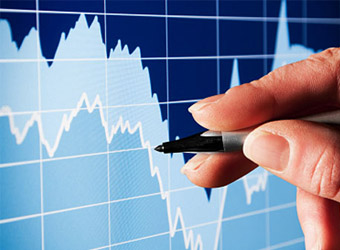Egypt fell two points in the 2016 Corruption Perceptions Index compared to the previous year with a score of 34/100, Transparency International announced Wednesday, citing the absence of real political will to fight corruption levels in the country.
In contrast, Egypt’s President Abdel Fattah al-Sisi stressed late last year the importance of fighting corruption in the country, saying that he himself is ready to be held accountable for wrongdoing.
The country referred several top officials to court on charges of bribery and corruption in 2015 and 2016, in addition to expanding the authorities of administrative bodies fighting corruption.
The most populous Arab nation came in 108th out of 176 countries rated in the 2016 report, compared to 88th out of 168 in 2015.
Following a popular uprising that toppled Egypt’s former president Hosni Mubarak in January 2011—for which political corruption was a primary motive—Egypt maintained a score of 32/100 in years 2012 and 2013.
In the organisation’s 2014 report, Egypt improved its score to 37/100, but dropped the next year to 36/100.
“In 2016, the government violated the independence of auditing institutions when President Sisi sacked and sentenced the head of Egypt’s top auditing body, Hisham Geneina, for publicly exposing how much corruption has cost Egypt in the past four years,” The German based NGO wrote in this year’s report.
“69 percent of the 176 countries on the CPI 2016 scored below 50, on a scale from 0 (perceived to be highly corrupt) to 100 (perceived to be very clean),” it continued.
“2016 showed that around the world systemic corruption and social inequality reinforce each other, leading to popular disenchantment with political establishments and providing a fertile ground for the rise of populist politicians,” the report said.
Transparency International notes that no country gets close to a perfect score in the Corruption Perceptions Index 2016.
“In too many countries, people are deprived of their most basic needs and go to bed hungry every night because of corruption, while the powerful and corrupt enjoy lavish lifestyles with impunity,” says José Ugaz, Chair of Transparency International.
“In the Middle East and North Africa: Despite the political changes that shook the Arab region six years ago, the hope for Arab countries to fight corruption and end impunity has not seen any progress yet. This explains the sharp drop of most of Arab countries on the 2016 index – 90 percent of these have scored below 50, which is a failing grade,” the report explained.
Among the bottom countries in the index were the Arab nations of Iraq, Syria, Yemen, Sudan and Libya.
Scandinavian countries were rated the least corrupt on top of the list, with Denmark staying in first place with a score of 90/100.
For the tenth year running, Somalia is the worst performer on the index, this year scoring only 10. South Sudan is second to bottom with a score of 11, followed by North Korea (12) and Syria (13). Countries at the bottom of the index are characterised by widespread impunity for corruption, poor governance and weak institutions.
Source: Ahram Online


